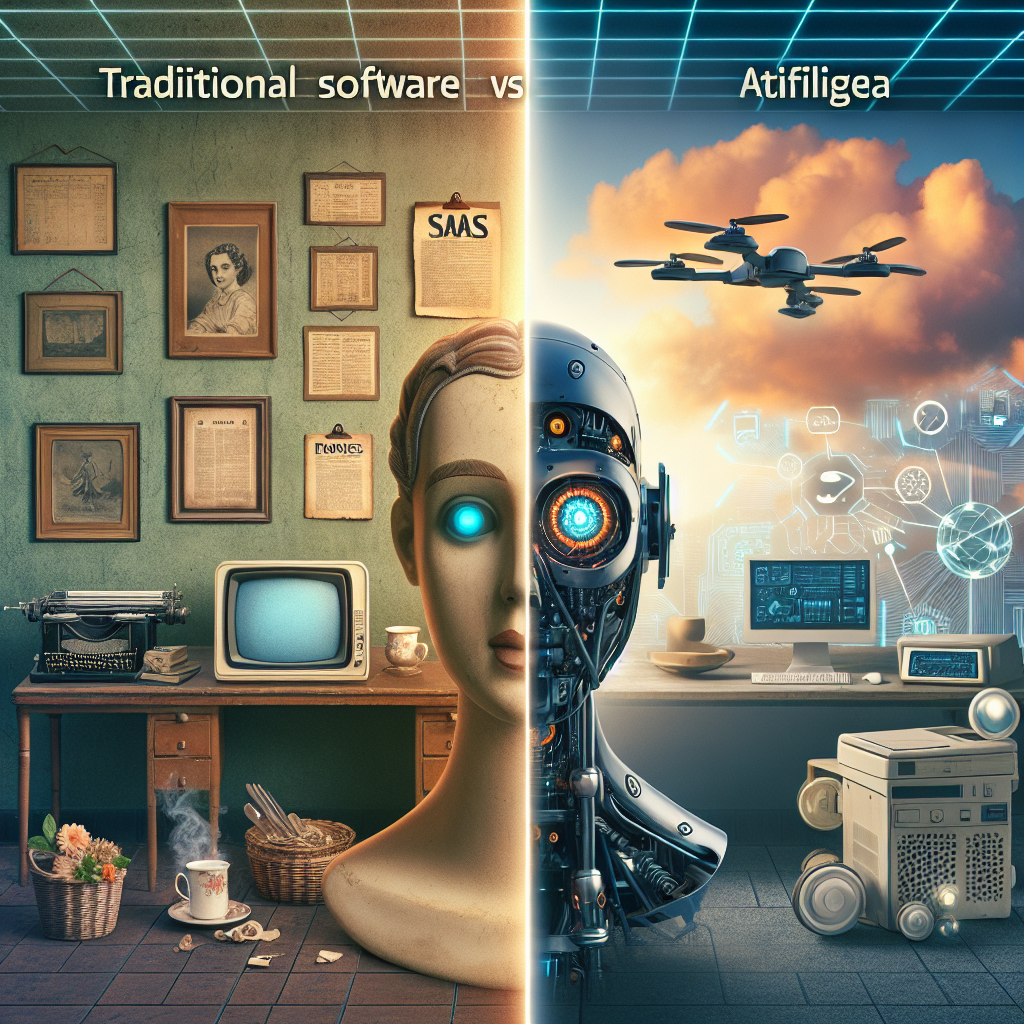The landscape of software solutions is undergoing a profound transformation. Traditional SaaS platforms, once the backbone of business operations, are increasingly challenged by the rise of AI Agents—intelligent systems capable of automating complex tasks, learning from interactions, and delivering personalized experiences. As these AI-driven agents evolve, they promise not only to enhance efficiency but to fundamentally change how organizations interact with software. This shift raises an important question: could AI Agents mark the end of the traditional SaaS era?
Exploring this question reveals compelling reasons why AI Agents are poised to disrupt established models and usher in a new age of smarter, more adaptive software.
How Traditional SaaS Models Have Shaped Business
The rise of SaaS revolutionized software delivery by offering cloud-based accessibility and subscription pricing, freeing businesses from hefty upfront costs and installation hassles. These platforms typically provide standardized modules designed for broad applicability across industries. This model brought significant advantages:
– Rapid deployment and updates without user intervention
– Lower initial investment and scalable pricing tiers
– Centralized maintenance and security managed by providers
Nevertheless, traditional SaaS often struggles with limitations such as rigid workflows, lack of customization, and reliance on manual input from users. Many businesses find themselves adapting their processes to fit the software, rather than the other way around.
What Are AI Agents?
AI Agents are autonomous software entities powered by artificial intelligence techniques like machine learning, natural language processing, and knowledge graphs. Unlike fixed-function SaaS modules, these agents can:
– Understand and interpret complex inputs from users
– Make decisions and perform actions autonomously
– Learn and improve over time based on outcomes and feedback
– Tailor responses and workflows to individual user needs
This dynamic adaptability allows AI Agents to serve as personalized digital assistants that can seamlessly integrate multiple data sources and systems, automating tasks that once required human intervention.
Key Advantages of AI Agents Over Traditional SaaS
1. Enhanced Automation and Efficiency
AI Agents can handle multifaceted processes end-to-end without constant human oversight. For example, an AI sales agent can not only manage customer outreach but also analyze behavior patterns and adjust strategies dynamically, driving higher conversion rates.
2. Personalized User Experiences
By learning from user preferences and contexts, AI Agents deliver customized interfaces and recommendations. This boosts user engagement and satisfaction well beyond the static templates typical of SaaS dashboards.
3. Seamless Integration Across Systems
AI Agents can operate across disparate software environments, bridging gaps between CRM, ERP, marketing platforms, and more. This interoperability empowers businesses with a unified, intelligent workflow.
4. Continuous Learning and Improvement
Traditional SaaS updates are periodic and provider-driven. AI Agents evolve continuously through interaction, enabling proactive problem-solving and adaptation to changing conditions.
How AI Agents Transform Specific Business Functions
Sales and Customer Service
AI Agents act as virtual sales assistants, qualifying leads, scheduling meetings, and providing tailored product information instantly. In customer service, they offer 24/7 support through chatbots capable of understanding complex queries and resolving problems without human escalation.
Marketing
By analyzing user data and market trends, AI Agents can automate campaign optimization, generate personalized content, and predict customer behavior, significantly improving ROI.
Operations and Supply Chain
Intelligent agents monitor inventory levels, forecast demand, and adjust orders autonomously. This leads to reduced stockouts, minimized waste, and streamlined logistics.
Human Resources
AI Agents manage talent acquisition by screening candidates, scheduling interviews, and assessing cultural fit through conversational AI. They also support employee engagement with personalized learning plans and performance insights.
Addressing Potential Challenges with AI Agents
The transition to AI Agents is not without hurdles. Organizations must consider:
– Data Privacy and Security: Handling sensitive information demands robust safeguards and compliance with regulations.
– Integration Complexities: Migrating from entrenched SaaS systems requires careful planning to avoid operational disruptions.
– User Trust and Adoption: Employees need to understand and trust AI Agents to maximize their potential. Training and transparency help build confidence.
– Ethical Considerations: Ensuring AI decision-making is fair and unbiased is critical.
Future Outlook: The Decline of Traditional SaaS?
While AI Agents offer transformative benefits, they are unlikely to render all traditional SaaS obsolete immediately. Instead, a gradual evolution is expected where AI Agents extend and enhance SaaS platforms, ultimately reshaping software paradigms. Vendors adopting AI Agents will gain competitive advantage by providing more responsive, efficient, and personalized solutions.
For businesses, early exploration and adoption of AI Agents can unlock unprecedented productivity and innovation. Understanding how to leverage these tools will be key to thriving in the next generation of digital transformation.
Rethinking Software Strategy for the AI Agent Era
Successful integration of AI Agents demands reimagining software strategies:
– Prioritize flexibility and customization in software selection.
– Invest in data infrastructure to fuel AI learning.
– Embrace change management to align teams with AI-driven workflows.
– Monitor AI agent performance continuously to ensure alignment with business goals.
By adopting these principles, companies can transition smoothly and harness the full potential of AI Agents.
Revolutionize Your Business with AI Agents Today
The era of traditional SaaS is at a crossroads. AI Agents are not just a technological upgrade but represent a fundamental shift toward software that thinks, learns, and adapts like a human collaborator. Their ability to automate complex tasks, personalize experiences, and integrate diverse systems positions them as the future of enterprise solutions.
Don’t get left behind in the SaaS model of yesterday. Explore how AI Agents can transform your organization’s operations and drive growth. Reach out to https://automatizacionesaiscend.com to discover tailored AI Agent solutions that meet your unique business needs and propel you into the future of technology.



